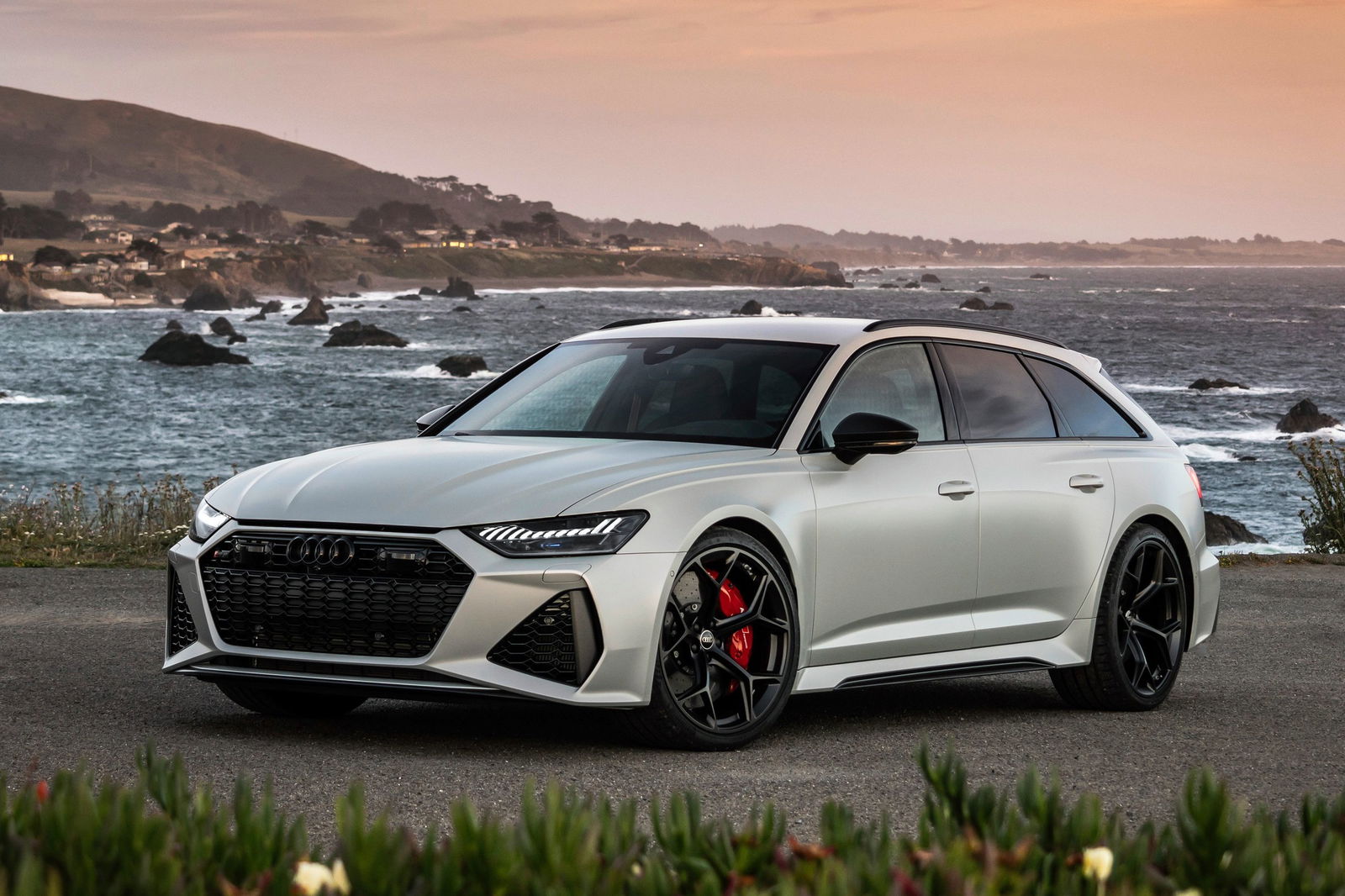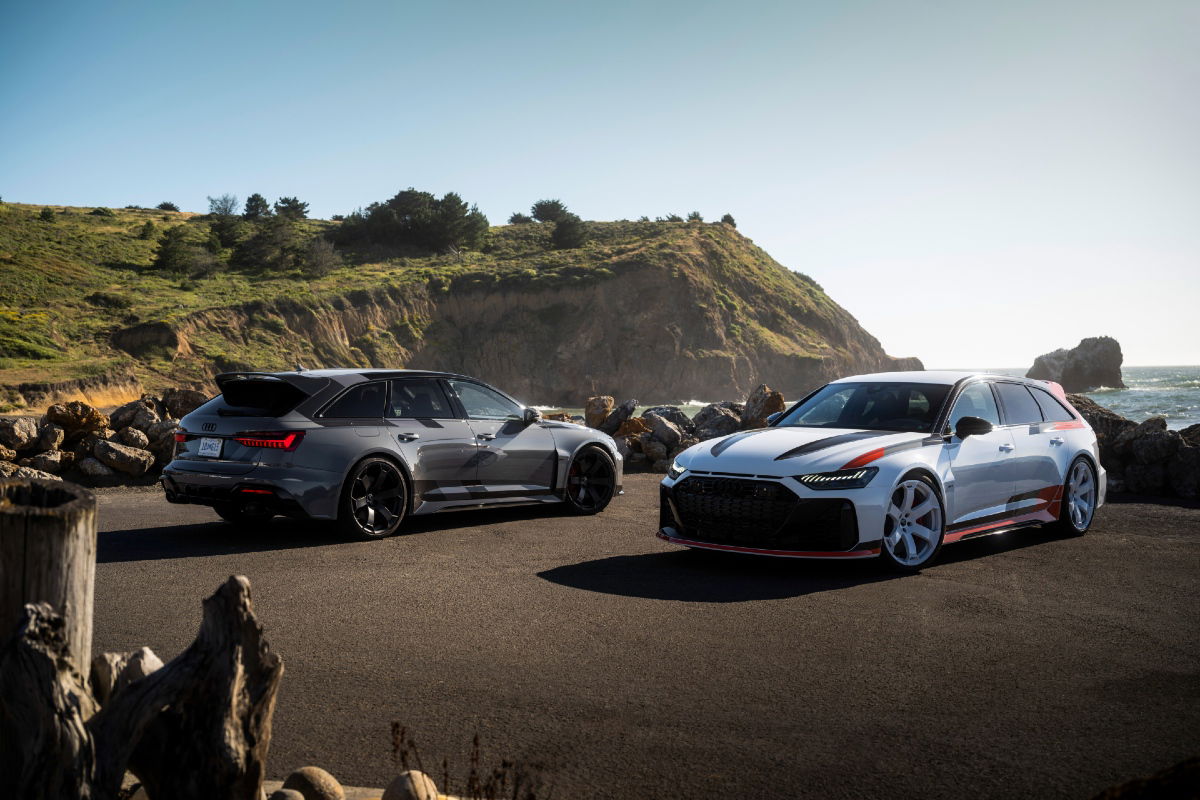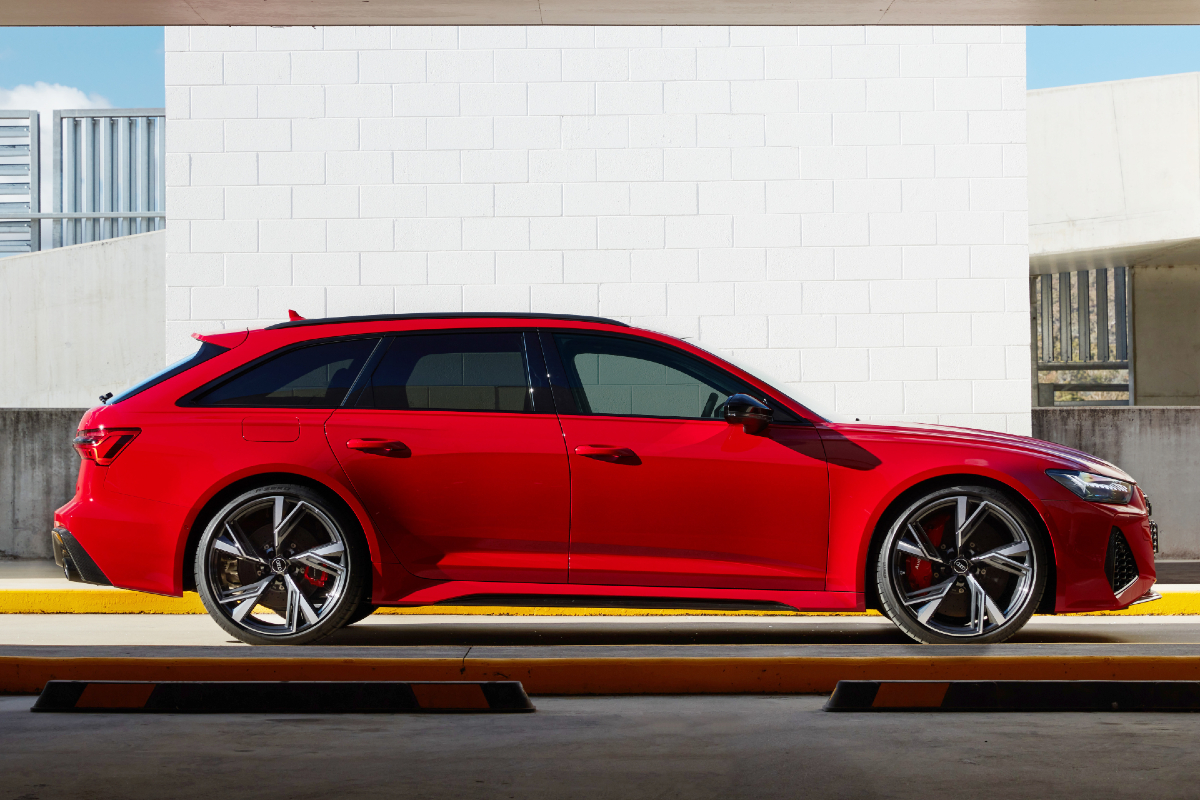Back in June, UK publication Autocar reported the next-generation Audi RS6 would not only launch next year with a plug-in hybrid twin-turbo V8 powertrain, but also as an EV, becoming one of the flagships of the brand’s e-tron range.
However, according to Top Gear that’s no longer the case, with Audi insiders telling the outlet the proposed electric RS6 e-tron is dead, leaving the S6 e-tron as the model’s flagship.
Based on the insider’s reported knowledge, the RS6 e-tron was scrapped due to low demand for the existing RS e-tron GT, which would have translated to poor sales for its long-roof rapid model.

Previous reports suggested the e-tron would adopt the Premium Platform Electric (PPE) architecture developed by Audi – and which underpins the battery-powered A6 and Q6 – while the hybrid RS6 will be underpinned by the Premium Platform Combustion (PPC) of the slightly smaller A5-series models.
It was expected to be an evolution of the upcoming S6 e-tron, which is set to produce 405kW and 856Nm – in the ballpark of the current RS6’s 463kW and 850Nm outputs.
This means good news for petrol engine lovers though, with the hybrid RS6 set to become even more powerful, with the previous Autocar report claiming plug-in hybrid powertrain will reportedly consist of an electric motor integrated into the transmission, fed by a lithium-ion battery.

This move to PHEV power has already been adopted by BMW with the latest M5, which can produce up to 535kW and 1000Nm from its twin-turbo V8 engine and electric motor combination.
For context, a version of the current RS6’s engine can be found in the Porsche Panamera, available as a PHEV in Turbo S E-Hybrid guise. That variant of the super sedan produces up to 575kW and 1000Nm, and can drive for up to 92km based on lab testing.
Perhaps the ditching of the RS6 e-tron project should come as no surprise, as in June Audi CEO Gernot Döllner said the brand would continue development of combustion engines, and walked back its goals of going EV-only by 2033.













Discussion about this post